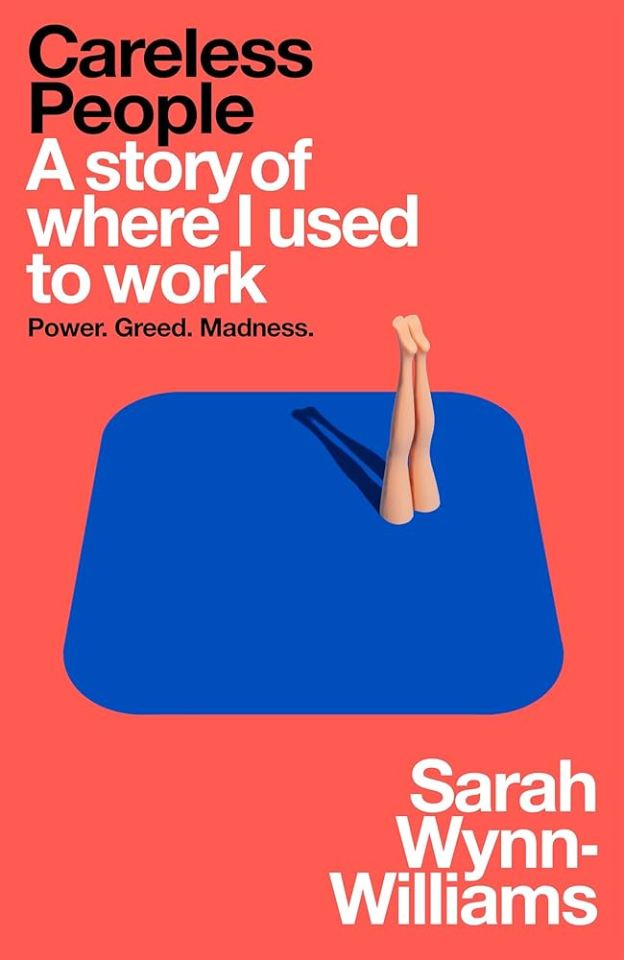Nothing is either good or bad, but thinking makes it so. Catholic. Married to the woman of my dreams: absolute-chadette
Don't wanna be here? Send us removal request.
Text
“As Mary Eberstadt has argued, "the underlying and underappreciated quantum leap toward irreligiosity in the 1960s" owed most of its force to the birth control pill. It "[changed] relations between the sexes —that is to say, within the natural family—as never before."(10)
Just as Darwin's theory of evolution shook popular assumptions about human origins and identity, the pill "severed the cultural connection between Christian ethics and American common sense," inspiring a private revolution. The resulting disarray "extended well beyond the narrow issue of birth control to encompass the entirety of sexual ethics. Over the course of a decade or so, a large swath of America decided that two millennia of Christian teaching on marriage and sexuality were simply out of date."(11)
And not just out of date. The pill's impact rippled out in political ways:
These changing attitudes led to the redefinition of the private sphere, in the courts and culture alike, and a widespread sense that issues like contraception, premarital cohabitation and divorce-and then, much more controversially abortion-were private matters where the government had no business interfering. The very idea of "morals legislation" became suspect, and Christian arguments about family law and public policy that might have been accepted even by secular audiences in the 1940s came to be regarded with suspicion as potential violations of the separation of Church and state.
At the same time, a more sweeping idea gained ground as well-the conceit that many of Christianity's stringent sexual prohibitions were not only unnecessary but perverse.(12)
It's tempting to shrug off this kind of worried analysis as yet another case of religious neurosis about the body, an exaggerated anxiety about sex. Many people do exactly that—it saves them the burden of thinking. But sex, as we'll see throughout these pages, is intimately linked to how we understand ourselves as human.”
-Archbishop Charles J. Chaput, Strangers in a Strange Land: Living the Catholic Faith in a Post-Christian World
—
(10) Mary Eberstadt, How the West Really Lost God: A New Theory of Secularization (West Conshohocken, PA: Templeton Press, 2013), 133.
(11) & (12) Ross Douthat, Bad Religion: How We Became a Nation of Heretics (New York: Free Press, 2012).
10 notes
·
View notes
Text

★ 【dodo】 「 frieren 」 ✔ republished w/permission ☆ follow btt’s fanart twitch stream!
75 notes
·
View notes
Text

my roommate asked me to make a keycap alignment chart so here is my opinion if you cant read the dark blue it says conlang keyboard
28 notes
·
View notes
Text


❗❗ANDROID USERS❗❗
Heads up to all android users, google is about to implement AI through A LOT of your google messaging apps, you can't just turn off Gemini, you HAVE TO TURN THIS OFF IN THE APPS SETTINGS THEMSELVES
135 notes
·
View notes
Text
A bit of trivia: A lot of people don’t understand what it means to “Count sheep” to sleep. In reality it’s an Insomnia treatment method where you pick a random topic where there might be several examples that fit the criteria “Disney witches” for example or “Films that feature Dracula as a character.” It can be anything at all. "Movies with Danny Elfman musical scores.“ You don’t Google the answer. You lay there and try to think of things that fit the topic you chose and count them. That’s how you really “Count Sheep.”
76K notes
·
View notes
Text
that's one way to stay safe I suppose.
Remember kids, when all else fails.
Floor it
2K notes
·
View notes
Text

Careless People: A Story of Where I Used to Work by Sarah Wynn-Williams
This account of working life at Mark Zuckerberg’s tech giant organisation describes a ‘diabolical cult’ able to swing elections and profit at the expense of the world’s vulnerable
Shortly after her waters broke, Sarah Wynn-Williams was lying in hospital with her feet in stirrups, typing a work memo on her laptop between contractions. Facebook’s director of global public policy needed to send talking points from her recent trip to oversee the tech giant’s bid to launch operations in Myanmar to her boss Sheryl Sandberg. Then she would give birth to her first child.
Wynn-Williams’s husband, a journalist called Tom, was livid but, as men tend to be in labour rooms, impotent. The doctor gently closed her laptop. “Please let me push send,” whimpered Sarah. “You should be pushing,” retorted the doctor with improbable timing. “But not ‘send’.”
This incident typifies how, in this 400-page memoir of her seven years at Facebook from 2011 – as it mutated from niche social network to global power able to swing elections, target body-shamed teens with beauty products and monetise millions of humans’ hitherto private data – Wynn-Williams had become part of what reads like a diabolical cult run by emotionally stunted men babies, institutionally enabled sexual harassers and hypocritical virtue-signalling narcissists.
The cult vibe of this birthing story is made stronger by Wynn-Williams channelling Sandberg’s 2013 book Lean In: Women, Work, and the Will to Lead. She quotes Sandberg’s injunction to pregnant working women – “Don’t leave before you leave” – taking its implication to be that she should work right up to the point that the baby’s head emerges into this fallen world. It doesn’t occur to her that Lean In feminism might serve as a fig leaf covering self-exploitation and soul-depleting workaholism.
A couple of pages earlier, Wynn-Williams writes like a wide-eyed convert: “It still feels exciting and important to spread this tool around the world and improve people’s lives.” An evidently clever former New Zealand diplomat, she was ideal fodder to help spread Facebook’s secular gospel, as her backstory reveals. After surviving a shark attack as a teenager, she resolved to spend her working life helping humanity. Upon witnessing how the nascent Facebook kept Kiwis connected in the aftermath of the 2011 Christchurch earthquake, she believed that Mark Zuckerberg’s company could make a difference – but in a good way – to social bonds, and that she could be part of that utopian project.
Her naive faith reminds me of what Jon Ronson wrote about in So You’ve Been Publicly Shamed: at their inception both the internet and social media seemed, to some, unalloyed good things. It’s instructive for someone like me – who disdains social media and sees in tech giants the lucrative weaponising of hate masquerading as free speech, and the asphyxiation of democracy by the enabling of post-truth populists – to encounter such cockeyed optimism.
The “tool” Wynn-Williams talks about is not Facebook per se, but Zuckerberg’s cherished internet.org app (which has operated under the name Free Basics since 2015), devised to deliver the internet to connectivity-deprived countries, such as Myanmar, as part of what sounds like a system upgrade of Britain’s oxymoronic imperial mission to civilise black and brown persons.
What internet.org involves for countries that adopt it is a Facebook-controlled monopoly of access to the internet, whereby to get online at all you have to log in to a Facebook account. When the scales fall from Wynn-Williams’s eyes she realises there is nothing morally worthwhile in Zuckerberg’s initiative, nothing empowering to the most deprived of global citizens, but rather his tool involves “delivering a crap version of the internet to two-thirds of the world”.
But Facebook’s impact in the developing world proves worse than crap. In Myanmar, as Wynn-Williams recounts at the end of the book, Facebook facilitated the military junta to post hate speech, thereby fomenting sexual violence and attempted genocide of the country’s Muslim minority. “Myanmar,” she writes with a lapsed believer’s rue, “would have been a better place if Facebook had not arrived.” And what is true of Myanmar, you can’t help but reflect, applies globally.
Before she was disabused, Wynn-Williams fawningly adored Sandberg, as the pair crisscrossed the globe in private jets, bringing the good news of Facebook to foreign leaders. At one point [p40-41], for instance. Wynn-Williams recalls witnessing what happened when Sandberg meets New Zealand prime minister John Key at Facebook’s California headquarters, writing: “Until this moment, it had never occurred to me to see Sheryl as a celebrity or be awestruck by her... But now I can see how she’s sprinkling some of her stardust, whatever that magical quality is that she has that makes you forget to focus on the substance of the meeting at hand and instead wonder what it is she’s doing differently that makes her better than you.”
She approvingly quotes another Lean In message, that you should “bring your authentic self to work”. But what that means in Facebook reality becomes clear when, in her first performance review after giving birth, Wynn-Williams is told that co-workers are uneasy that her baby can be heard on business calls. The poor poppets. “Be smart and hire a Filipina nanny,” counsels Sandberg. Wynn-Williams does just that, but then something shocking happens. One day, Tom is checking the home camera when he notices a firefighter in their living room: the nanny has locked herself out and the baby inside the flat. But when Wynn-Williams later relates this disturbing event to colleagues, she feels as though she has made a faux pas – distracting them from their noble mission with personal guff. “The expectation of Facebook is that mothering is invisible,” she writes. Facebook cannot tolerate too much authenticity.

The book’s title comes from F Scott Fitzgerald’s The Great Gatsby: “They were careless people, Tom and Daisy – they smashed up things and creatures and then retreated back into their money or their vast carelessness.” For Wynn-Williams, Zuckerberg’s “move fast and break things” philosophy is just such entitled carelessness, leaving Facebook staff and their customers to sweep up the wreckage. But the Facebook she describes is not run by careless people, not really, but rather by wittingly amoral ones who use technical genius and business acumen to profit from human vulnerability. For instance, she claims Facebook – now Meta, which owns Instagram and WhatsApp – identified teenage girls who had deleted selfies on its platforms, and then supplied the data to companies to target them with ads for putatively tummy-flattening teas or beauty products.
Wynn-Williams’s shtick, often presenting herself as the only conscience in the room, does wear thin. I tired of reading of how shocked she was at some Facebook policy, while continuing to spread its values worldwide. “I’m astounded at the role money plays in elections in the US,” she writes at one point, as the 2016 Trump campaign gears up with political ads and targeted misinformation from which Facebook massively profited. Are you really so naive? I wrote in the margin. “I’m also against exporting this value system. But Facebook is effectively bringing this in globally by stealth.” And you’re part of it! I wrote in the margin. If only she’d taken to heart the critical messages of, say, David Fincher’s movie The Social Network or Dave Eggers’s novel The Circle, she might have leaned out earlier.
And yet her memoir is valuable, not just as indictment of the Facebook cult but of bosses’ entitled behaviour that will resonate for many. She depicts Zuckerberg as a tech-bro Henry VIII, a thin-skinned angry child whose courtiers let win at the board game Settlers of Catan during flights on his private jet. She charges him with lying to Congress about the extent of Facebook’s compromises to woo China and allow it to operate there, suggesting that his company was developing technology and tools to meet Chinese requirements that would allow it to censor users’ content and access their data. He was, she claims, much more in cahoots with Xi Jinping’s authoritarian regime than he let on to US senators.
On another private jet, relates Wynn-Williams, Sandberg imperiously invited her to sleep in the same bed. Wynn-Williams declined, but thereafter worried that she had upset her boss by not yielding to a presumably sexual demand, which she depicts in the book as the ex-Facebook COO’s entitled modus operandi with several women subordinates.
And then there’s what Joel Kaplan, currently Meta’s chief global affairs officer, allegedly did to Wynn-Williams at a boozy corporate shindig in 2017. She claimed that he called her “sultry” and rubbed his body against hers on the dancefloor. This wasn’t a one-off incident, she claims: indeed, there was a group at Facebook called Feminist Fight Club, whose members compared notes on such reportedly prevalent cases of sexual harassment by execs. An internal investigation cleared Kaplan of impropriety and soon after Wynn-Williams was fired for making misleading harassment allegations.
Last week, Meta responded to this book, calling it “a mix of out-of-date and previously reported claims about the company and false accusations about our executives”. The company has denounced its former employee, claiming that she was not a whistleblower but a disgruntled activist trying to sell books. Most likely she is both.
Wynn-Williams notes that Facebook changed its name to Meta in 2021. “But leopards don’t change their spots. The DNA of the company remains the same. And the more power they grab, the less responsible they become.” That culture of irresponsibility and carelessness should worry us more than ever, she suggests at the end of the book, as Zuckerberg’s Meta is at the forefront of artificial intelligence, a technology even more potentially calamitous than the one he dreamed up in his Harvard dorm a couple of decades ago.
Daily inspiration. Discover more photos at Just for Books…?
39 notes
·
View notes
Text

Talk about ignoring the canary in the coal mine... Wild that one of her first jobs as a political consultant was to gaslight Germans about Facebook's function as a tool of a surveillance state.
42 notes
·
View notes
Text
i'm a huge crybaby, so when my mom told me about the carmelite martyrs of compiegne, i thought to myself: i cannot be the only one who'll cry about it. which is why i'm sharing it now to you guys
so here's a little excerpt from an article that the Vatican published about it, along with some links about the entire thing:
Not too long after, Mother Teresa of St Augustine shared with the four oldest choir sisters with whom she lived a proposal to invite the entire community to offer their lives for the salvation of France, in imitation of St Teresa of Avila who reformed Carmel for that express intention. She understandably met with immediate resistance. After all, who in their right mind would voluntarily submit themselves to instant decapitation by the newly inaugurated guillotine? Remarkably, however, within the space of a few hours, the two senior nuns begged their Prioress’ forgiveness for their lack of courage. This opened the way for Mother Teresa to propose an act of self-offering to the other members of the community. As of November 27, each nun daily recited an act of self-offering for the salvation of France written by the prioress. Eventually, an intention was added for the release of those who had been arrested and that fewer people would be guillotined.
...
...the nuns’ voices singing the Divine Office floated through the streets of Paris as they were paraded toward the executioner’s block. The executioner also allowed the nuns to complete the prayers for the dying, which included the singing of the Te Deum. After the subsequent singing of the Veni Creator Spiritus, and the renewal of their vows, the nuns went one by one to the scaffold, received a final blessing from their Prioress, kissed a statuette of Our Lady, and followed the sacrificial Lamb.
Here's another quote, from a website named Devotion to Our Lady
Cloaked in their white mantles and with hands bound at their backs, the sixteen recollectedly boarded the tumbrils that would bring them to Place du Trône Renversé where the guillotine awaited them. Along the way, priests disguised as sans-culottes gave them absolution. The journey was long… but the air was permeated by their solemn chants of the sixteen, singing as they did in choir: “Have mercy on me, God, in your kindness. In your compassion, blot out my offense…. Hail, holy Queen, mother of mercy….” Before their execution they knelt and chanted the "Veni Creator", as at a profession, after which they all renewed aloud their baptismal and religious vows. The guillotine had been standing for more than a month already at the Barrière du Trône (Place du Trône Renversé; today it is called Place de la Nation). Upon arriving there, Sr. Constance suddenly accused herself before Mother Thérèse of not having finished her divine office. Her superioress told her: “Be strong, daughter! You will finish it in Paradise!”
you can read about it more here:
23 notes
·
View notes






